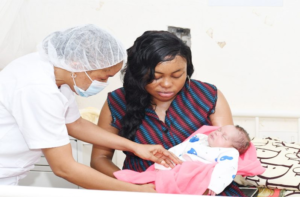Domestic Violence and its effects
By Stanford Conway
SKN News Source
CITIZENS and residents of St. Kitts and Nevis, specifically women, should be pleased with the recent passage of the Domestic Violence (Amendment) Bill, which seeks to make much-needed urgent changes to protect victims of domestic violence and provide them with swift access to justice.
According to the Mover of the Bill, Junior Minister with Responsibility for for Gender Affairs, Senator Isalean Phillip, “the prevalence of gender-based violence is a growing concern in our Federation” and the Bill is a critical piece of legislation.
Statistics from the Royal St. Christopher and Nevis Police Force (RSCNPF) have shown a steady increase of domestic violence over several years, and that there was a surge surge in 2020 following the onset of the COVID-19 pandemic.

The statistics indicated that there were 87 reported cases of domestic violence in 2019, but a 400-percent increase was recorded in the following year with a total of 359 reported cases.
In the first half of this year (2022), there were 238 reported cases, 195 of which represented female complaints.
Resultantly, the Junior Minister told the House of Assembly that “there is cause for concern and a need for immediate actions to address and combat this social problem”.
It is from this backdrop that I have decided to expound on this social issue classified under Abuse.
When one hears or speaks about domestic violence, one often thinks/believes that it is an act that hurts an adult victim.
Yes, it does hurt the victim! But not all acts of domestic violence are physical. Many of the acts are emotional and they are also perpetrated against children.
Notably, domestic violence is widely believed to be perpetrated by men against women. But men are also victims of this act. However, it is a known fact that many male victims were either ashamed or would have felt embarrassed to lodge complaints against their female partners.
Abuse come in various forms, and listed below are a number of them:
- Physical Abuse – This is when one person harms another and causes injury to the body.
- Sexual Abuse – This relates to any form of sexual violence or exploitation.
- Domestic Violence – This is when a person physically harms his/her partner.
- Psychological or Emotional Abuse – This occurs when an individual purposely harms the mental wellbeing of another in a non-physical way.
- Financial Abuse – This form of abuse is when one misused or took cash, assets or belongings of another person for personal gain, which are sometimes done by coercion, deception or threats.
- Abandonment – This is when an individual abandons or neglets another individual (such as a child, aged, ill or disabled person) for whom he/she is responsible to provide care.
- Discriminatory Abuse – This type of abuse is when an individual treats another differently based on his/her ethnicity, religion, gender, sexual orientation, disability, et cetera, which can cause harm harm in favoring others, leading to victimization and harassment etc.
While many women were and some are still being afflicted by domestic violence, and the nation being aware of the exponential increase in the number of reported cases, it is time for a study to be done in order to find the root cause(s).
I am also very concerned about the effects on children, the leaders of tomorrow, who have been affected by domestic violence; the imact of which can affect them physically and emotionally for the rest of their lives.
While not all children within abusive homes are victims of violence, they might have witnessed their mothers being abused by their fathers and, that, like the abused children, they can be adversely effected, especially boys who could become violent in their future relationships.
One writer on the subject noted that studies have shown that living with domestic violence could cause physical and emotional harm to children and young people in the following ways:
- Ongoing anxiety and depression;
- Emotional distress;
- Eating and sleeping disturbances;
- Physical symptoms, such as headaches and stomach aches;
- Find it hard to manage stress;
- Low self-esteem;
- Self-harm;
- Be aggressive towards friends and school mates;
- Feel guilt or blame themselves for the violence;
- Have trouble forming positive relationships;
- Develop phobias and insomnia;
- Struggle with going to school and doing school work;
- Use bullying behaviour or become a target of bullying;
- Difficulty concentrating;
- Find it hard to solve problems; and
- Have less empathy and caring for others.
Passing of the Domestic Violence (Amendment) Bill, 2022 is therefore a welcomed initiative as it provides a new layer of protection for victims.
According to Senator Phillip, there were shortcomings in the 2014 Bill, such as the High Court becoming the primary court of adjudication which created problems for persons being unable to pay legal fees.
She however informed the House of Assembly that that was the reason for the amemdments, which “will change the jurisdiction of the Courts to include both the Magistrates and the High Court so that individuals have easier access to justice through Magistrate’s Court while still having the option of High Court hearings for more serious grievances and matters”.
She also said: “While the existing legislation provides for some legal recourse, we recognize the need for improvements that will give the legislation more teeth to effectively deter abusers from offences and shift engrained cultures of gender-based violence that plague our society.”
It was promised that the Ministry of Gender Affairs would also through “education and public awareness around the issues concerning domestic violence so that we can begin shifting the culture of what healthy relationships look like, around what healthy masculinity looks like”.










